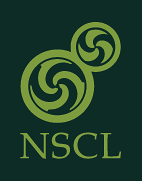State of the art mass spectrometry for nuclear science at TITAN
Abstract: The atomic mass is a crucial property to understand the nature of nuclear forces, nuclear structure, fundamental symmetries, and astrophysical processes. The TITAN facility at TRIUMF has been successfully performing precision mass measurements of radioactive nuclei for over a decade. In a recent result, the emergence of nuclear shell effects in N=32 was studied in neutron-rich Ti and V isotopes. The very sensitive TITAN Multiple Reflection Time-of-Flight Mass Spectrometer enabled the mass measurements of ions of interest in highly contaminated ion samples. The results conclusively establish the existence of weak shell effects in titanium but no effect in vanadium, narrowing down the abrupt onset of this shell closure. As this experiment illustrates, mass spectrometry techniques have become more challenging as the availability of beams grows towards increasingly exotic species. They need to be faster for shorter lifetimes, more sensitive for lower intensities, higher resolving for larger contamination levels, and sufficiently precise for scientific interest. Recent developments at TITAN have been demonstrated or are being commissioned. Among them, upgrades in the TITAN's Penning Trap Mass Spectrometer will push the precision boundary towards the parts-per-billion level for species living as short as a few tens of milliseconds. In this seminar, I will discuss some of TITAN's recent measurements, aspects of the technical advances, and plans for future developments.



